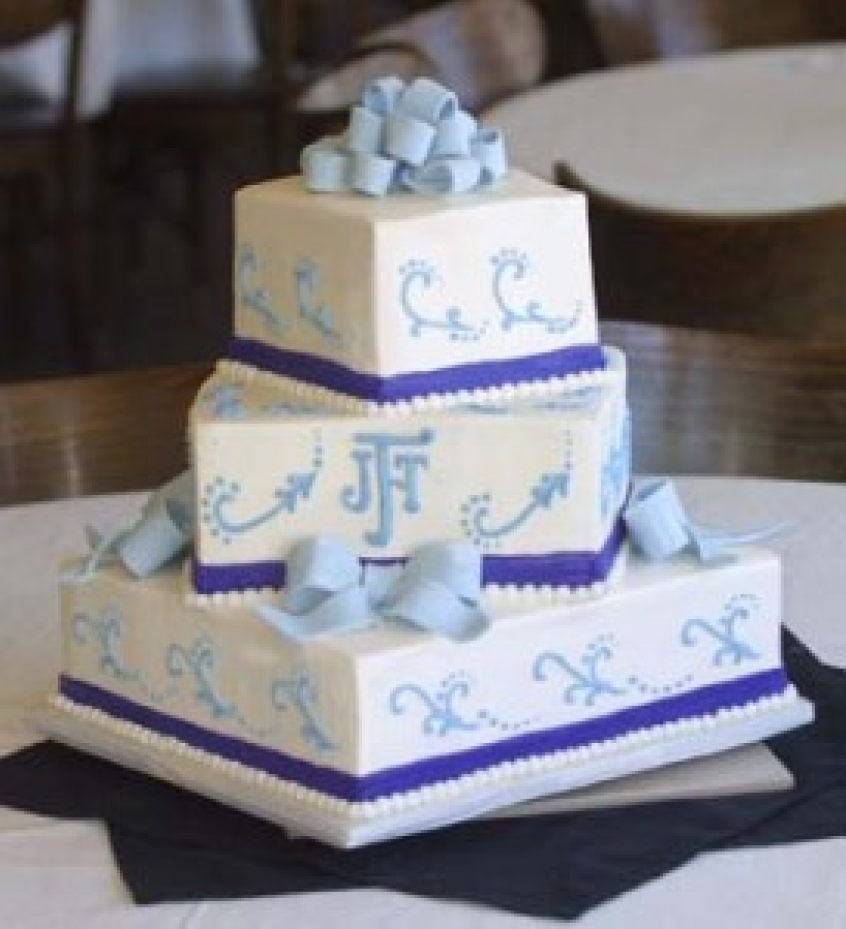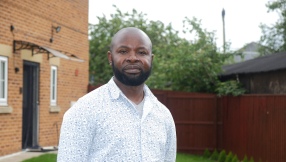Donald Trump's administration is backing a Christian baker who refused to bake a cake for a same-sex couple in a landmark case at the US Supreme Court.
The unusually forthright brief from the Department of Justice urged the judges to back Colorado's Masterpiece Cakeshop owner Jack Phillips, who says making a cake for a same-sex couple violates his religious liberty.
The lawsuit will be one of the most important to be heard this term and the intervention from Trump's administration caused fury among LGBT activists.
Siding with the Christian backer, Acting Solicitor General Jeff Wall wrote for the Justice Department: 'Forcing Phillips to create expression for and participate in a ceremony that violates his sincerely held religious beliefs invades his First Amendment rights.'
The friend-of-the-court brief added: 'The government may not enact content-based laws commanding a speaker to engage in protected expression: An artist cannot be forced to paint, a musician cannot be forced to play, and a poet cannot be forced to write.'

The American Civil Liberties Union, which is representing the couple, blasted the administration's intervention.
'This Justice Department has already made its hostility to the rights of LGBT people and so many others crystal clear,' said Louise Melling, ACLU's deputy legal director. 'But this brief was shocking, even for this administration. What the Trump Administration is advocating for is nothing short of a constitutional right to discriminate.'
But Kristen Waggoner, senior counsel for the Alliance Defending Freedom representing Philipps, said: 'Nobody should be forced to choose between their profession and their faith.
'Phillips gladly serves anyone who walks into his store, but, as is customary practice for many artists, he declines opportunities to design for a variety of events and messages that conflict with his deeply held beliefs. In this case, Jack told the couple suing him he'd sell them anything in the store but just couldn't design a custom cake celebrating their wedding because of his Christian faith.
'Tolerance is a two-way street, and people should have the freedom to disagree on critical matters of conscience. The same government that can force Jack to violate his faith and conscience can force any one of us to do the same.'
The case began in 2012 when Charlie Craig and David Mullins asked Philipps to design a cake for their wedding. Philipps declined because of his faith and the couple filed a complaint with the Colorado Civil Rights Commission which ruled against Philipps.
Now the Supreme Court has agreed to take up the case.
While it is not unusual for the government to file what is called an 'amicus' brief, the strength of tone and support for Philipps is unusual, according to CNN's Supreme Court analyst Steve Vladeck.
'What makes this brief unusual is its substance. It's practically unheard of for the Justice Department to argue in favor of a constitutional exemption to antidiscrimination laws – a constitutional right to discriminate,' he said. 'But that's exactly what this brief is doing.'













